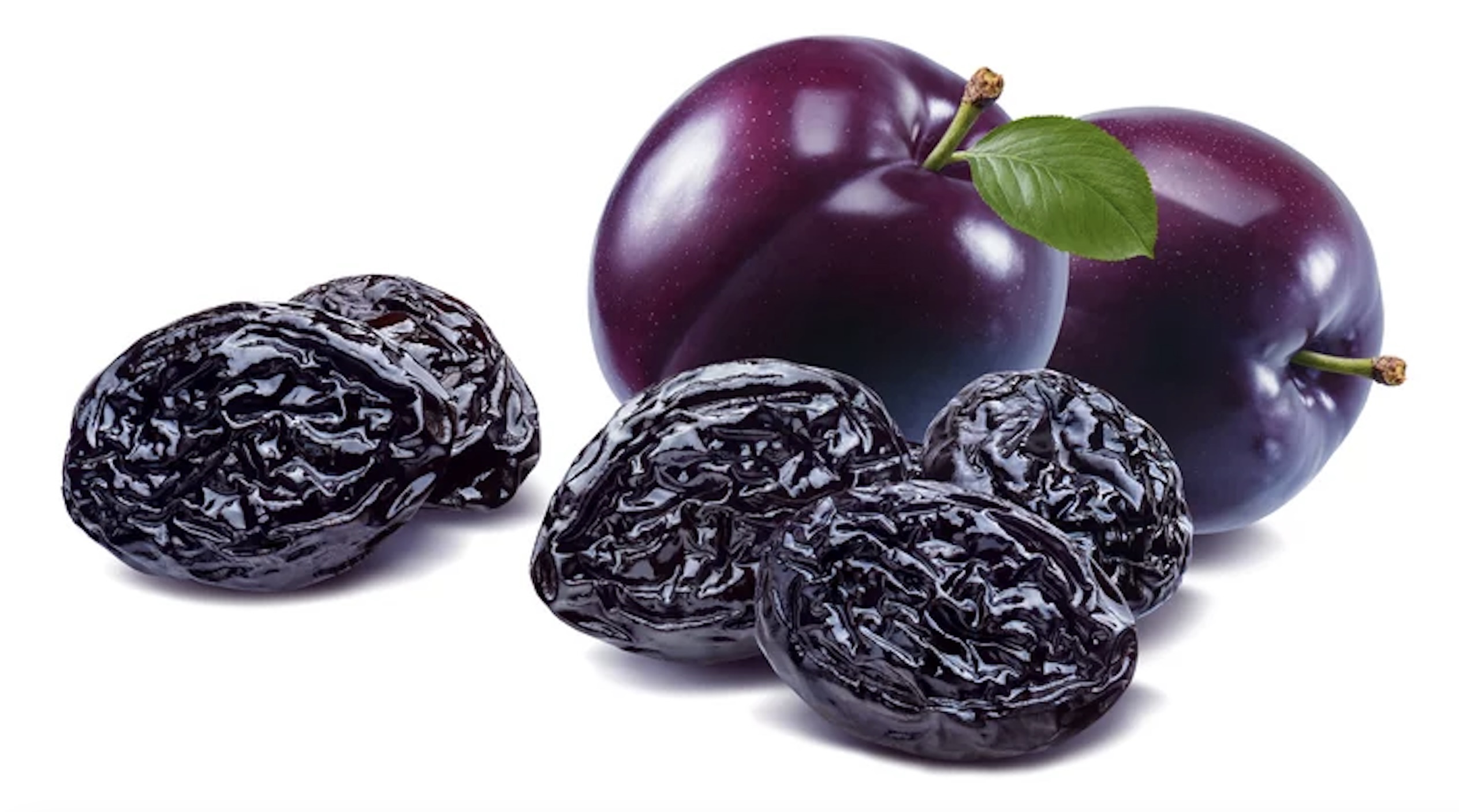Health Benefits of Plums and Prunes
What are the health benefits of plums and prunes?
Plums and prunes, which are dried plums, offer several health benefits when consumed as part of a balanced diet:
- Rich in Nutrients: Plums and prunes are low in calories but rich in nutrients like vitamins (such as vitamin K, vitamin C, and some B vitamins) and minerals (such as potassium and copper).
- Digestive Health: Prunes, in particular, are well-known for their natural laxative effects due to their high fiber content. They can help promote regular bowel movements and prevent constipation.
- Antioxidant Properties: Plums and prunes contain antioxidants such as vitamin C and phenolic compounds, which help protect cells from damage caused by free radicals and may reduce the risk of chronic diseases.
- Heart Health: The fiber, potassium, and antioxidants in plums and prunes can help support heart health by lowering cholesterol levels, reducing blood pressure, and decreasing the risk of heart disease.
- Bone Health: Plums and prunes are a good source of vitamin K, which is important for bone health and may reduce the risk of osteoporosis.
- Blood Sugar Control: Plums and prunes have a low glycemic index, which means they cause a slower rise in blood sugar levels. This can be beneficial for blood sugar control, especially for people with diabetes.
- Weight Management: Despite being calorie-dense, prunes can help with weight management due to their fiber content, which can help you feel full and satisfied.
- Skin Health: The vitamin C and other antioxidants in plums and prunes can help protect the skin from damage caused by UV rays and pollution, keeping it looking healthy and youthful.
Overall, plums and prunes are nutritious fruits that can be a healthy addition to your diet. They can be enjoyed fresh, dried, or cooked, and used in a variety of dishes, such as salads, desserts, and sauces, to add flavor and nutritional value.
What are the health risks of plums and prunes?
Plums and prunes are generally safe for most people when consumed in moderation as part of a balanced diet. However, there are a few potential health risks associated with them:
- Allergic Reactions: Some individuals may be allergic to plums or prunes, which can cause mild symptoms such as itching and hives, or severe reactions such as anaphylaxis. People with allergies to birch pollen or other fruits may be more likely to have an allergic reaction to plums.
- Gastrointestinal Issues: While prunes are often used to relieve constipation due to their high fiber content, consuming large amounts of prunes or prune juice can lead to digestive issues such as bloating, gas, or diarrhea, especially in sensitive individuals.
- Sulfite Sensitivity: Some dried fruits, including dried plums (prunes), may contain sulfites, which are used as preservatives. Sulfites can cause allergic reactions in some people, particularly those with asthma or sulfite sensitivity.
- Caloric Content: Dried plums (prunes) are more calorie-dense than fresh plums due to their concentrated nature. Consuming large amounts of prunes without considering their calorie content can contribute to weight gain.
- Pit Hazard: The pits or stones inside plums can pose a choking hazard, especially for young children or individuals with swallowing difficulties. It’s important to remove the pits before consuming plums.
- Pesticide Residue: Like other fruits, plums and prunes may contain pesticide residue, especially if not organically grown. Washing plums and prunes thoroughly before eating them can help reduce pesticide exposure.
Overall, plums and prunes are nutritious fruits that can be a healthy part of your diet. However, individuals with allergies, digestive issues, or concerns about sulfites should consume them with caution and consult with a healthcare professional if they have any concerns.




